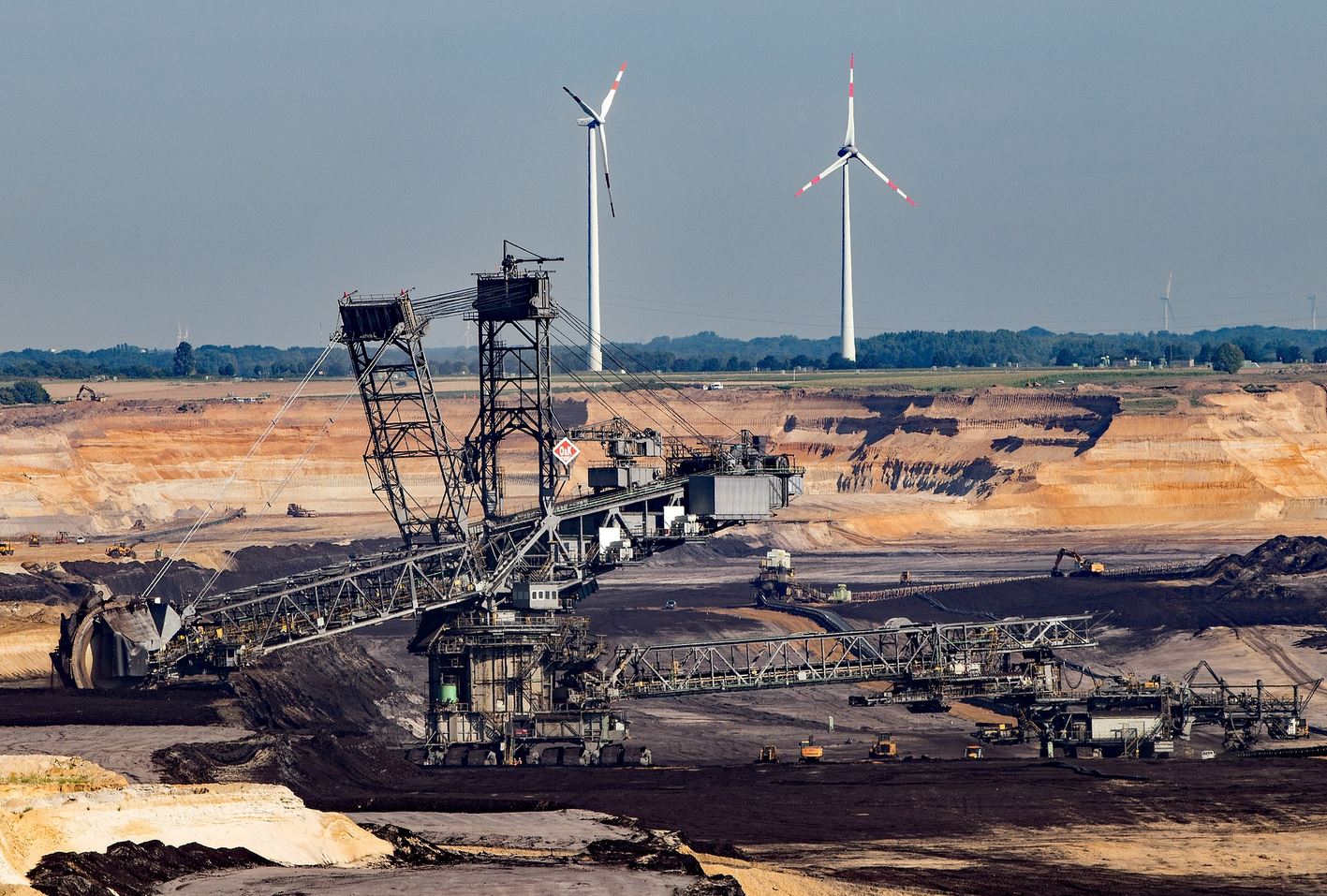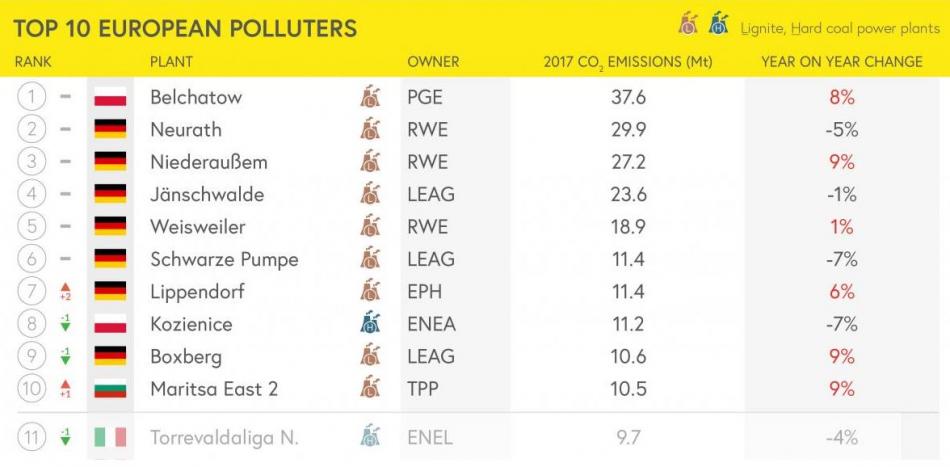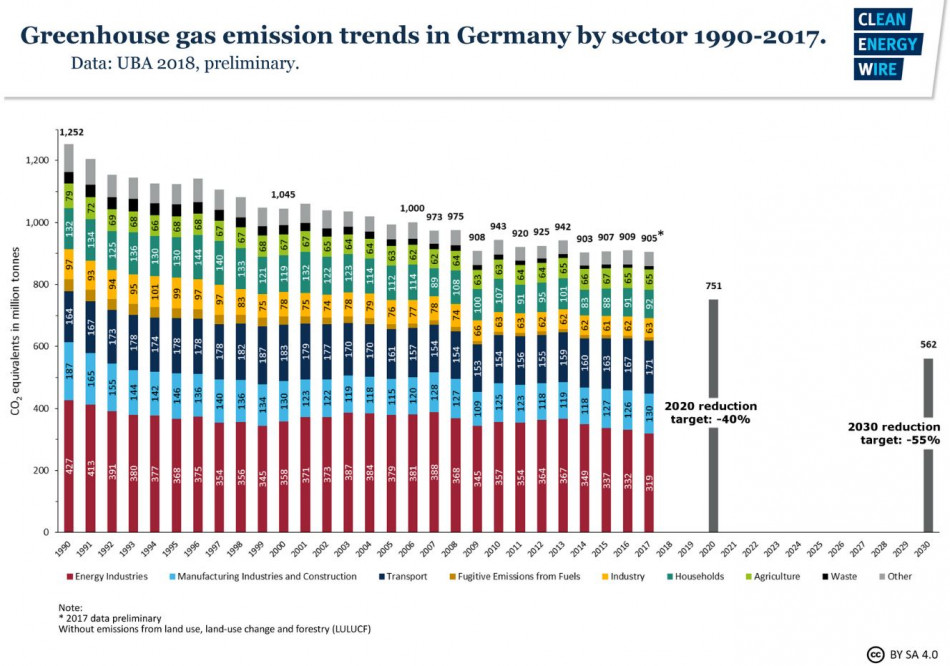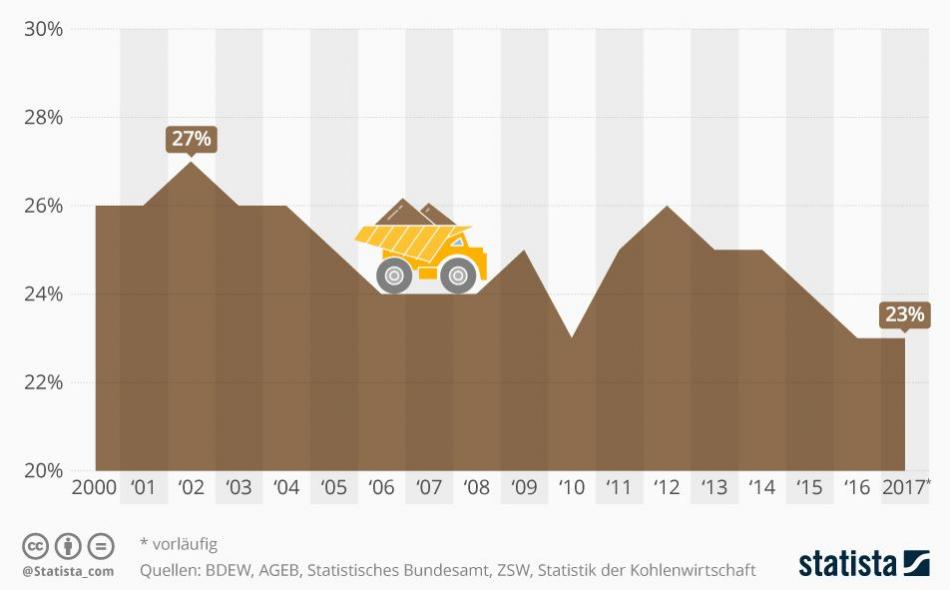Germany starts coal exit talks in bid to improve patchy climate record
[Please note: For a collection of reactions, see the item Reactions to Germany's official launch of coal exit task force]
After a prolonged squabble over the new commission’s makeup and remit, Germany’s governing coalition has finally launched the task force, officially called the “Special Commission on Growth, Structural Economic Change and Employment.” It will bring policymakers, industry representatives, labour unions, residents from coal mining areas, and environmental NGOs to the table to decide on a roadmap and to specify an end date for phasing out coal power.
“The commission must make it clear that the country’s coal dependent regions do have a future. It must show how we can exit coal in a pre-determined manner, and fix an end date,” said environment minister Svenja Schulze, a Social Democrat, after the government’s announcement.
Economy and energy minister Peter Altmaier, a member of Chancellor Angela Merkel’s conservative CDU party, added that the new commission had a double mandate: “It’s about climate protection in the coming years, so we can keep our commitments, but prominently, it’s also about jobs.”
“The people working in coal-fired power generation must not become victims of the decisions we must take with a view to the environment and the climate,” Altmaier said.

Germany must stop using coal to generate electricity in order for it to reach its goal of becoming largely greenhouse gas-neutral by mid-century. Currently, coal-fired power generation is the country’s single largest source of carbon emissions. The world’s fourth largest economy has been successful in rolling out renewables, which already cover more than a third of its electricity need. But the continued use of coal power, coupled with little progress in greening transport and other sectors, mean that emissions have barely fallen in recent years.
Economy over climate?
Advocates of fast action on climate change criticised the commission’s official mandate, arguing that economic development and social considerations take precedence over emissions reduction. The commission's official mandate opens with an acknowledgement of the government's general aim to create stable and similar economic conditions across the whole country backs this perspective.
Stefanie Langkamp from the Climate Alliance Germany said the commission’s emissions reduction mandate was insufficient to keep global warming below 2 degrees, let alone 1.5 degrees, and therefore not compatible with the Paris Climate Agreement.
In contrast, Michael Vassiliadis, head of coal mining union IG BCE, warned a rapid coal exit would hurt industry and cost jobs.
German industry said the commission must use the chance for a change of course in climate policy. “A realistic policy which does equal justice to climate protection and profitability is necessary,” said Dieter Kempf, president of industry association BDI, who will be a member of the commission. “It would be disastrous if the commission solely concentrated on a symbolic exit from coal-fired power generation.”
The criticisms shed light on an astonishing shift in Germany’s public debate. Only three years ago, most policymakers shunned the issue entirely because it was considered political suicide. But in the wake of the Paris Climate Agreement, all players have accepted that coal-fired power generation is incompatible with the energy transition’s climate targets.
Chancellor Merkel told parliament in May that the government should first clarify what will become of the affected regions, and stop mining activities only later, rather than agreeing on an end date first. She added that the task force should follow the example of Germany’s hard coal exit. “We have managed it in a way that the workers were able to cope with the changes. It was done together with them. That’s how it has to be with lignite as well,” Merkel said. The discussion focuses on lignite, or brown coal, as Germany still heavily relies on its mining and use. The country’s last hard coal mines will close later in 2018. [For plenty of background, read the factsheets When will Germany finally ditch coal?and Coal in Germany.]
For mitigating climate change, the path Germany takes to phase out coal is much more decisive than an end date. Switching off Germany’s biggest polluters soon, instead of keeping them on the grid until the exit date, could save billions of tons of CO2 emissions.
According to British climate NGO Sandbag, seven German lignite power stations are among the top ten CO2 polluters in Europe.
This is why environmentalists insist on an intermediary 2025 climate target, which would enable the authorities to assess progress made towards the binding 2030 target of cutting emissions by 55 percent compared to 1990 levels.
Germany will likely miss its 2020 target of a 40 percent emissions cut by a wide margin because emissions reduction has stagnated in recent years.
“It’s the commission’s task to show how we can close the gap to the climate targets we have for 2020,” environment minister Schulze said.
“Very balanced makeup”
The commission has 31 members. Its leaders will be Deutsche Bahn board member and former Chancellery chief Ronald Pofalla (conservative); climate economist Barbara Praetorius, a former deputy director at Agora Energiewende*; as well as former state premiers Stanislaw Tillich (conservative) and Matthias Platzeck (social democrat). Their respective states, Brandenburg and Saxony, will be heavily affected by the coal exit, because they include the lignite mining region of Lusatia.
“The commission has a very balanced makeup,” Schulze said. “We have everybody at one table, which is a good thing. Past experience with similar commissions has been positive. In 2011, we managed to bring the nuclear exit forward in a similar constellation, and now we have the chance to develop a similar scenario for coal.”
“We can master the challenges ahead only with a great joint effort,” economy and energy minister Altmaier said.
Tillich is known to be a vocal defender of coal mining.He has called phase-out plans “a catastrophically wrong decision.” He has also said that a lignite exit will require over six billion euros in compensation payments, and can only happen “in the long run.” The governments of both Saxony and Brandenburg have said that Lusatia must remain an industrial region after the last coal mine is shut down.
Burning coal to generate power provides employment to around 30,000 people in Germany. This is only a fraction of the number employed by the wind industry. But coal mining is highly concentrated in three German regions, making the transition a difficult structural challenge.
Coal workers, environmental NGOs, politicians, citizens, industry, and energy companies have already intensely debated the shape and speed of a coal exit
*Like the Clean Energy Wire, Agora Energiewende is a project funded by Stiftung Mercator and the European Climate Foundation.




